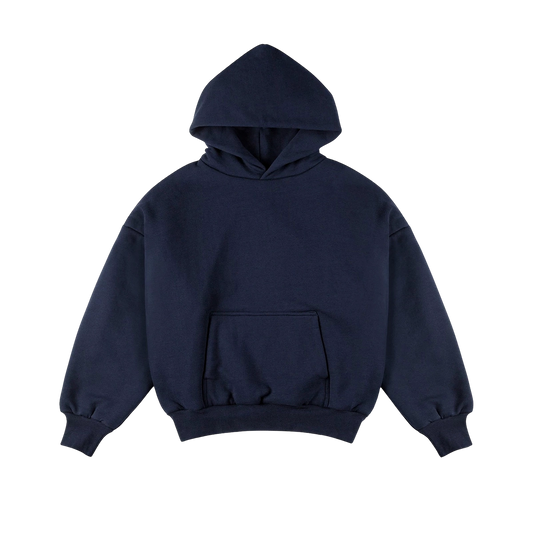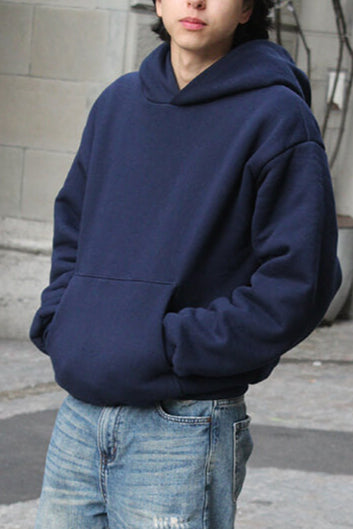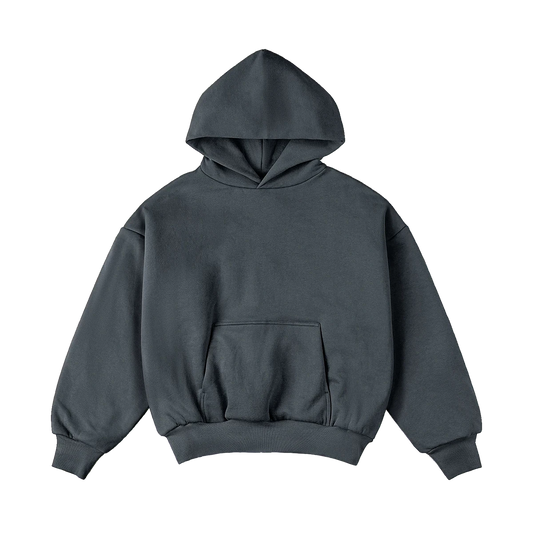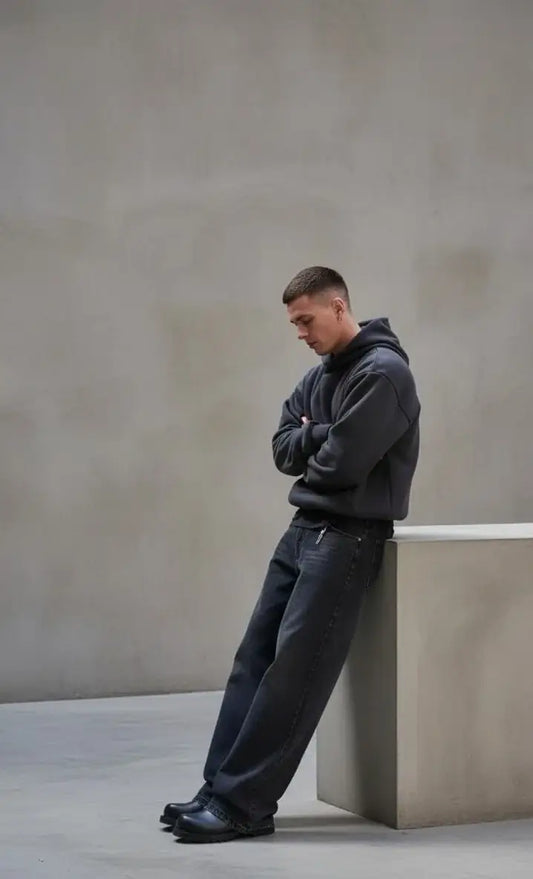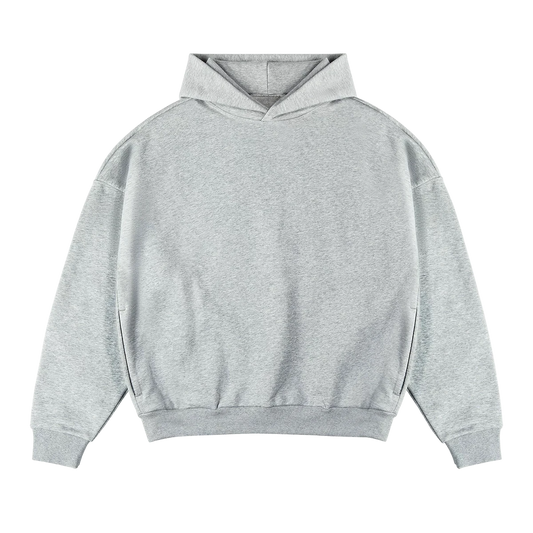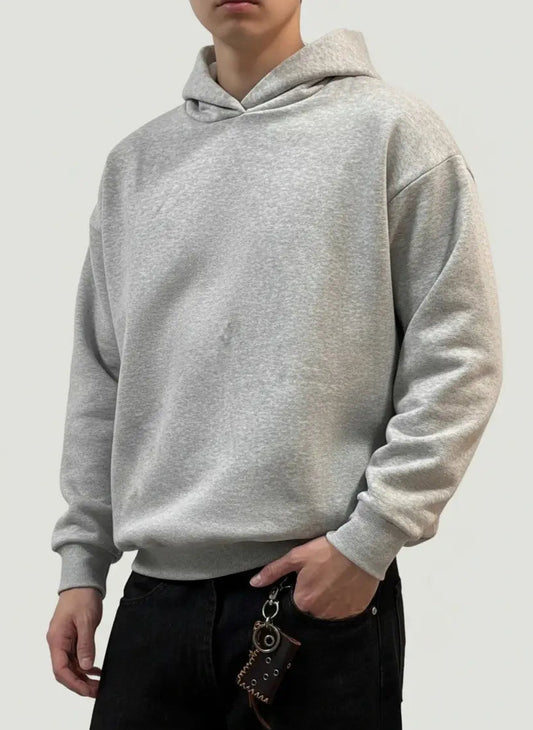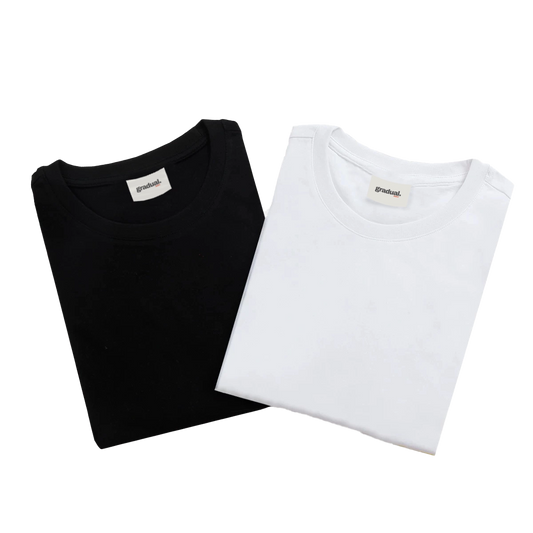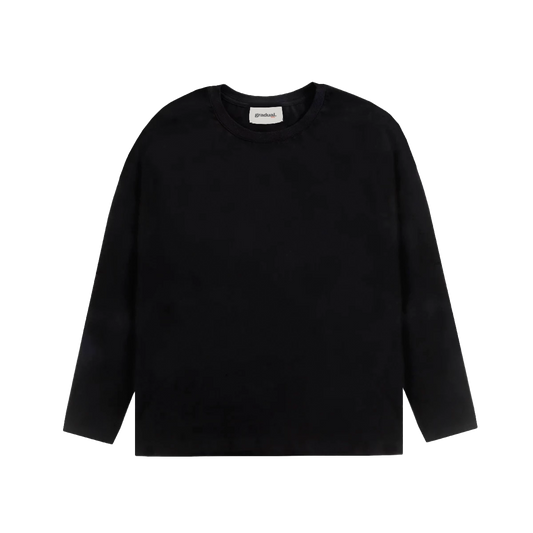
High-quality vs. cheap hoodie: The ultimate quality guide 2025
Contents
Introduction: Understanding Hoodie Quality
A good hoodie is more than just a piece of clothing, especially in Switzerland, where the changeable climate, from frosty winters to cool summer evenings, demands a reliable companion. But how do you distinguish between a high-quality hoodie that will last for years and a cheap model that loses its shape after just a few washes?
In this guide, we show you the most important quality features: from fabric weight (GSM) to material composition, workmanship, and fit.
Particularly exciting: Double-layer hoodies are a rarity on the Swiss market. They essentially consist of two fully connected hoodies in one garment. This construction not only offers superior thermal insulation but also a better silhouette and longer durability.
Find out why good models start at at least 350 GSM and discover what really matters in a durable hoodie in our ultimate heavyweight hoodie guide for Switzerland .
Cheap vs. Quality: The Key Differences
Typical features of cheap hoodies:
- Material composition: High polyester content (40%-100%) with a low cotton content. Often feels synthetic and can develop an unpleasant odor when exposed to body heat.
- Fabric weight: Usually under 350 GSM (approximately 400-700 grams total weight). The fabric appears thin, allows light to pass through, and offers little structure.
- A simple test: Hold the hoodie up to the light. Cheaper models will clearly show through the light, indicating thin, low-quality fabric .
- Lint test: If you pull on the lint inside cheap hoodies, it comes off very easily. A clear sign of cheap workmanship and short-lived materials.
- Processing: Simple seams with only one seam line, which can tear more quickly under stress.
- Cuffs and hems: Thin cuffs that stretch and lose their elasticity after 5-10 washes.
- Colorfastness: Cheap dyeing processes often result in the color fading significantly after 3-5 washes.
- Sustainability: The production of cheap hoodies is often a symptom of fast fashion , which incurs enormous social and environmental costs. Our philosophy of longevity is the conscious alternative.
Characteristics of high-quality hoodies:
- Material composition: 65-100% cotton with an appropriate polyester content for an optimal balance between comfort and shape stability.
- Heavyweight quality: 350-450 GSM for substantial feel and long-lasting shape.
- Precise workmanship: Double seams and four-thread overlock technology on the fabric edges prevent fraying and increase tear resistance.
- Reinforced cuffs: Elastic, thicker ribbed cuffs retain their shape even after 30+ washes .
- Well-thought-out fit: Pre-shrunk fabric and ergonomic cut ensure that the hoodie retains its original shape even after many washes.
- Durability: You will still be wearing quality hoodies in 5 years .

Our hoodie collection at a glance
The single-layer all-rounder
A single-layer hoodie—like our "Everyday Essential"—consists of a single, thick layer of fabric. This construction is ideal for everyday use and offers:
- Lighter feel for everyday wear and milder temperatures
- Flexibility when layering (fits well under jackets)
- Comfortable to wear at temperatures from 5°C to 20°C
The double-layer winter specialists
Standard hoodies offer little protection in the Swiss winter. Our double-layered models, on the other hand, can withstand temperatures from -15°C to 15°C without the need for a bulky jacket:

Everyday essential
- Construction: Single layer
- GSM: 400 g/m²
- Material: 85% cotton, 15% polyester
- Weight: approx. 700 g
- Temperature range: +5°C to +20°C
- Price: 62 CHF (Sale: 49.60 CHF)



The Gradual
- Construction: Double layer
- GSM: 800 g/m² (2×400)
- Material: 85% cotton, 15% polyester
- Weight: approx. 1.4 kg
- Temperature range: -10°C to +15°C
- Price: 102 CHF (Sale: 81.60 CHF)



To the Matterhorn
- Construction: Double layer
- GSM: 850 g/m² (2×425)
- Material: 70% cotton, 30% polyester
- Weight: approx. 1.4 kg
- Temperature range: -15°C to +12°C
- Price: 112 CHF (Sale: 89.60 CHF)


The advantages of the double-layer construction:
- Superior thermal insulation: The layer of air between the fabric layers acts as a natural thermal insulation.
- Better silhouette: The heavier fabric falls more elegantly and retains its shape even when moving.
- Increased durability: The double layer of fabric means twice the wear resistance in high-wear areas.
- Premium feel: The substantial weight immediately conveys a high-quality feel.


Further quality factors in detail
Material quality:
- Cotton quality: High-quality hoodies use long-staple cotton . This produces less lint and feels softer than short-staple varieties.
-
Optimal mixing ratios:
- 65-85% cotton for maximum comfort with good shape retention.
- Higher cotton content (85-100%) for a more natural skin feel.
Understanding GSM – What does it actually mean?
| GSM class | Area | Area of application | Characteristics |
|---|---|---|---|
| Lightweight | 200-300 g/m² | Spring/Autumn, Layering, Sports | Lightweight, breathable, flexible |
| Midweight | 300-400 g/m² | Everyday hoodies, transitional period | Good compromise between warmth and weight |
| Heavyweight | 400-500 g/m² | Winter, premium streetwear | Warm, substantial, durable |
| Ultra-Heavyweight | 500+ g/m² | Extreme cold, alpine conditions | Maximum warmth, highest quality |
Lightweight
Range: 200-300 g/m²
Area of use: Spring/Autumn, layering, sports
Features: Lightweight, breathable, flexible
Midweight
Range: 300-400 g/m²
Area of use: everyday hoodies, transitional period
Features: Good compromise between warmth and weight
Heavyweight
Range: 400-500 g/m²
Application: Winter, premium streetwear
Features: Warm, substantial, durable
Ultra-Heavyweight
Range: 500+ g/m²
Area of application: Extreme cold, alpine conditions
Features: Maximum warmth, highest quality
Processing details that make the difference:
- Seam routing: High-quality hoodies have double stitching at all connection points.
- Hood construction: Three-part hood for better fit and natural drape.
- Kangaroo pocket: Reinforced edging prevents tearing under stress.
- Cuffs: Extra-strong rib-knit cuffs with increased elastane content for lasting shape stability.
"A high-quality hoodie is like an investment in your comfort. You'll feel the difference every day you wear it."
– Gradualbasics TeamConclusion: Quality that convinces
A high-quality hoodie isn't just a piece of clothing, it's a long-term investment. While cheap, fast-fashion hoodies often need to be replaced after one season, premium models offer:
Advantages of high-quality hoodies:
- Up to 5 times longer lifespan compared to cheaper alternatives
- Better wearing comfort without warping or stretching
- More sustainable choices through fewer new purchases
- Long-term cost savings despite higher purchase price
Particularly suitable for Switzerland:
- Optimal protection in changeable climates
- Double-layered models often replace a winter jacket
- Perfect for urban everyday life and outdoor activities
- Stylish companion through all seasons
- Looking for inspiration? Discover our men's style guide and women's style guide .
Unsure how quality compares to well-known brands? We've put it to the test. Read our 2025 Hoodie Comparison , where we take a close look at popular models.


Discover our premium hoodies with up to 850 g/m² – perfect for the Swiss winter:
Discover the Heavyweight CollectionFrequently asked questions about hoodie quality
How do I recognize a high-quality hoodie when shopping?
Pay attention to the weight (heavier = better), check the material composition (at least 65% cotton), and test the light transmission. High-quality fabric lets hardly any light through. Also feel the cuffs – they should be firm and stretchy, not thin and loose.
What does GSM mean for hoodies and what value is ideal?
GSM stands for "grams per square meter" and measures fabric density. For high-quality single-layer hoodies, the ideal range is 350-450 GSM. Premium double-layer hoodies reach 800+ GSM. The higher the GSM value, the denser, warmer, and more durable the fabric.
Is it worth investing in an expensive hoodie?
Yes, a high-quality hoodie can last five times longer than a cheap one. When you calculate the cost per wear, a premium hoodie is often more affordable. It also offers better comfort, retains its shape and color longer, and is more sustainable because it needs to be replaced less often.
What material composition is best for a hoodie?
The optimal composition is 65-85% cotton with a percentage of polyester for shape retention. Higher cotton percentages (85-100%) are ideal for maximum comfort, while a higher percentage of polyester improves shape retention and durability. Long-staple cotton offers the best quality.
How do I properly care for my high-quality hoodie?
Wash your hoodie inside out at 30°C with similar colors. Avoid fabric softener, as this can damage the fibers. Air dry the hoodie flat or on a hanger instead of tumble drying. With proper care, a premium hoodie will retain its shape, color, and quality for years. For more details, see ourcare instructions .
For what temperatures are double-layer hoodies suitable?
Double-layer hoodies like "The Gradual" or "Zum Matterhorn" are designed for temperatures from -15°C to 15°C. They offer excellent thermal insulation thanks to the layer of air between the fabric layers and can often replace a winter jacket, especially in urban environments or during moderate physical activity.
